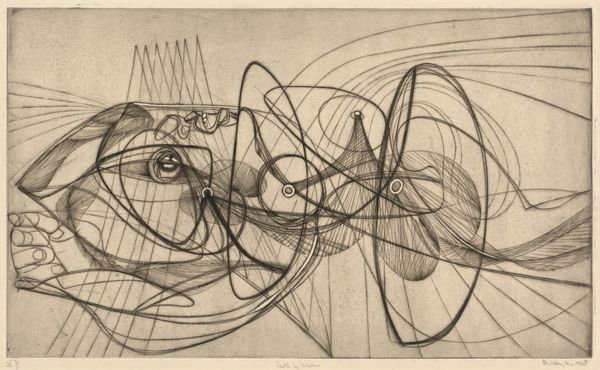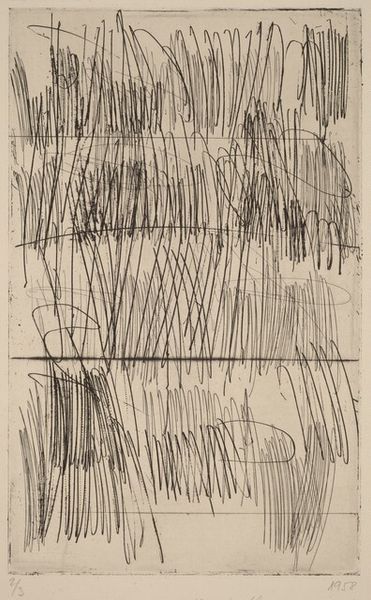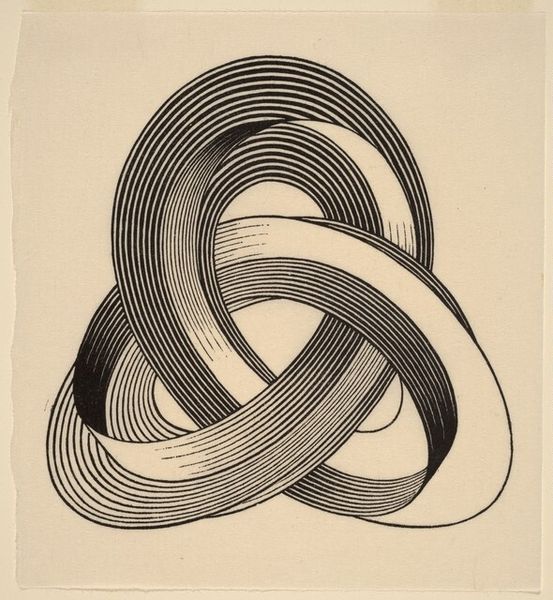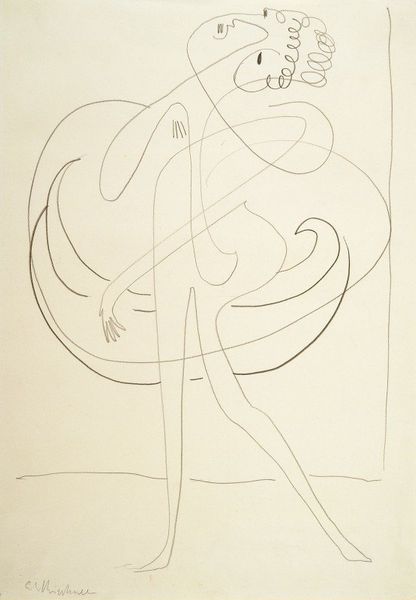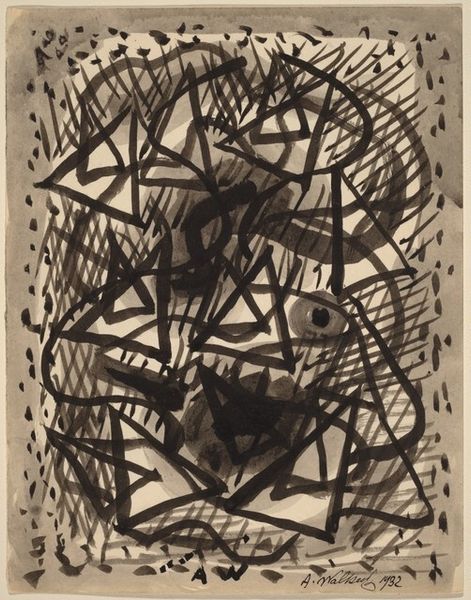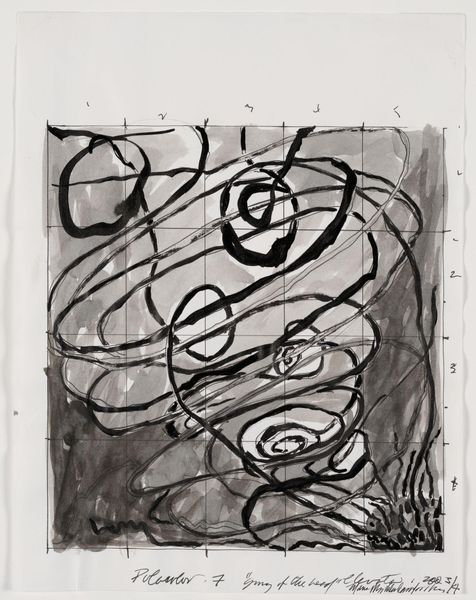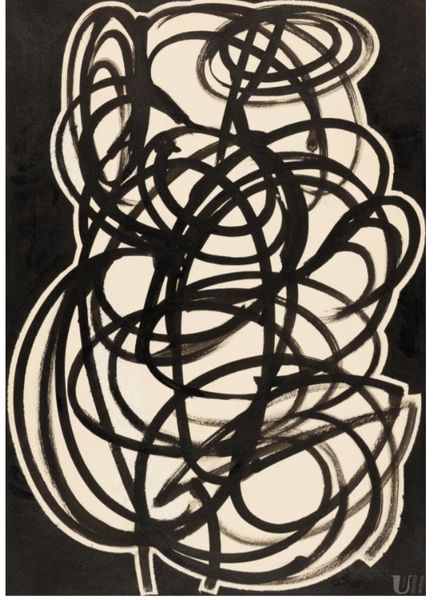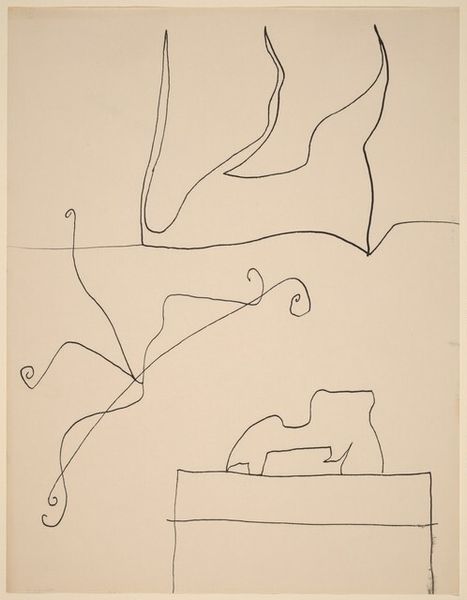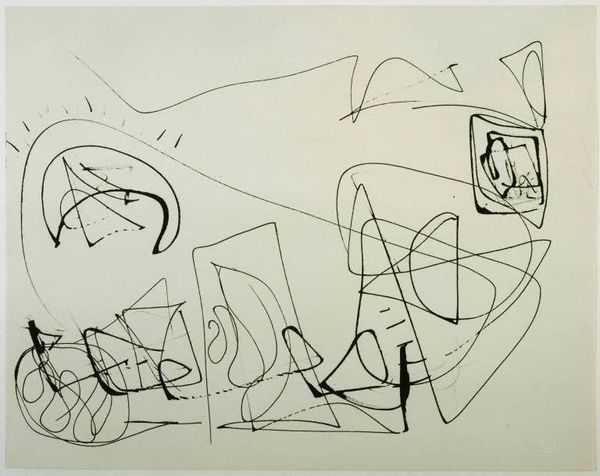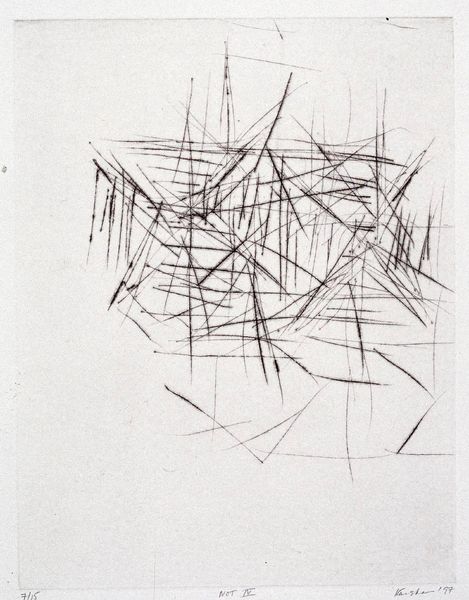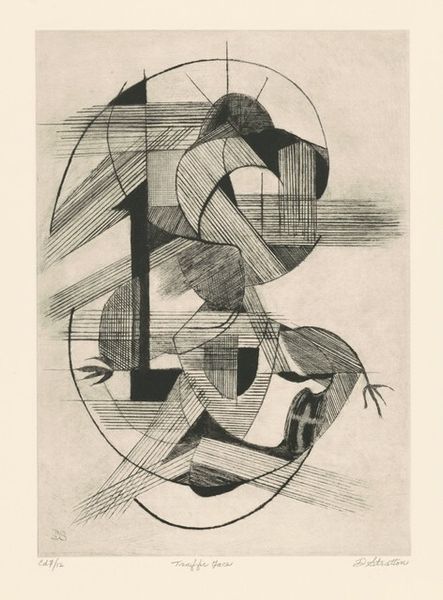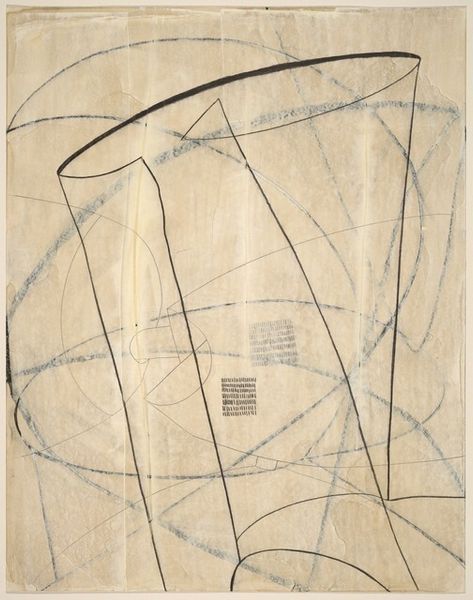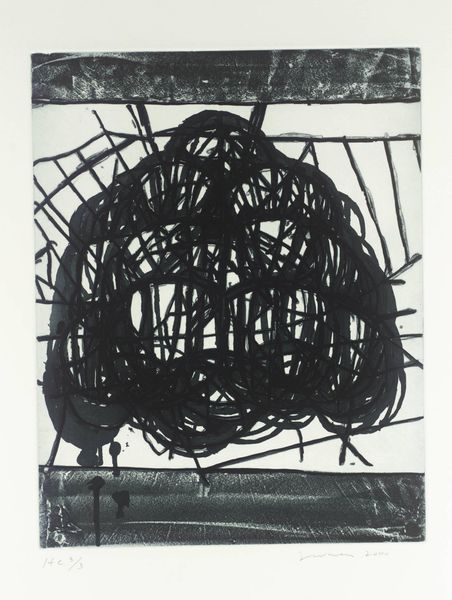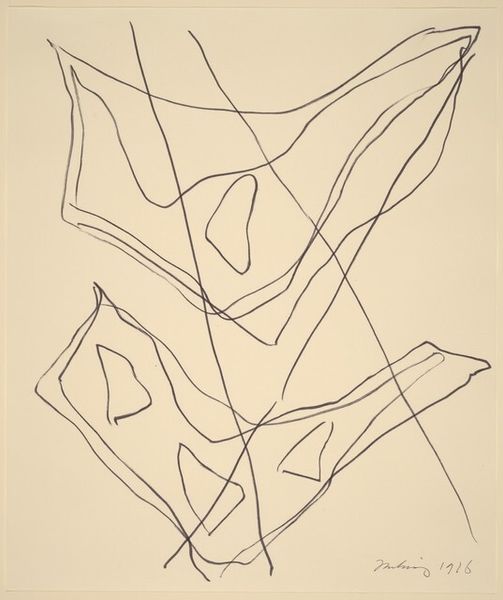
print, graphite
#
abstract-expressionism
# print
#
thin linework
#
geometric-abstraction
#
line
#
graphite
Dimensions: image: 425 x 346 mm paper: 559 x 425 mm
Copyright: National Gallery of Art: CC0 1.0
Editor: Here we have Theodore Brenson’s *Untitled (White on Black Abstract)*, created around 1950, using graphite. It’s striking how the white lines carve out a sense of frantic energy against the dark background. What is your interpretation of this work, focusing on its formal elements? Curator: The essence lies in the interplay between line, space, and texture. The stark contrast immediately grabs the eye, doesn't it? Consider how the artist utilizes line – observe the variance in their weight and direction. They create a dynamic, almost chaotic field. Are these lines simply random, or do they suggest a hidden structure? Editor: They seem chaotic at first glance, but there are repeated shapes. The curved lines almost look like paths. Curator: Exactly. Now, think about the relationship between the white lines and the black background. The background isn't just empty space, is it? It actively defines and shapes the white lines. Editor: It's true, the black emphasizes their direction. The lines might lose something without the contrast. Curator: Precisely. This relationship is fundamental. Notice the varying densities of linework? How do these create a sense of depth or movement? Are they simply decorative, or do they possess an underlying representational structure? The medium itself, graphite on paper, contributes to the texture and tonal variations, further enriching the viewing experience. Editor: Seeing it this way shifts my understanding entirely. It’s not just chaos, but a structured investigation into form and space. Curator: Indeed. By carefully examining its elements, the artwork begins to reveal a network of relations, reflecting intentional artistic choices rather than mere accident. It challenges us to decode the formal structures embedded in abstract expression.
Comments
No comments
Be the first to comment and join the conversation on the ultimate creative platform.
